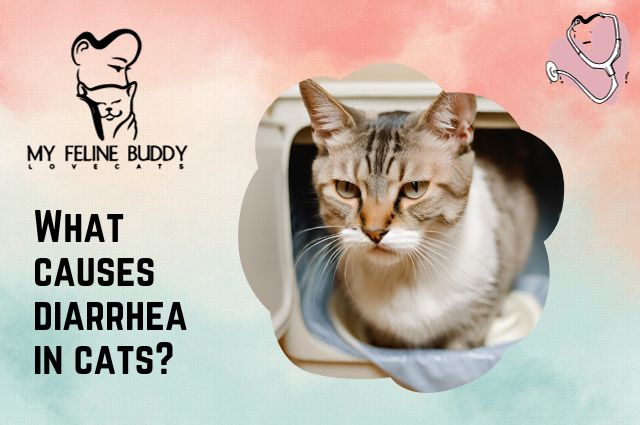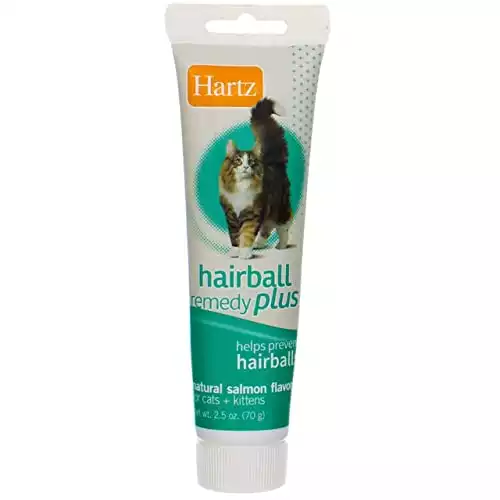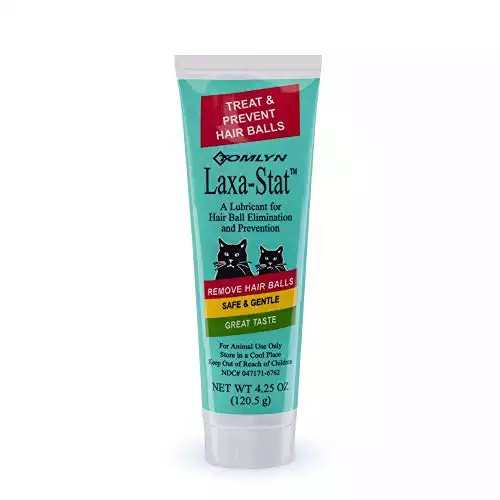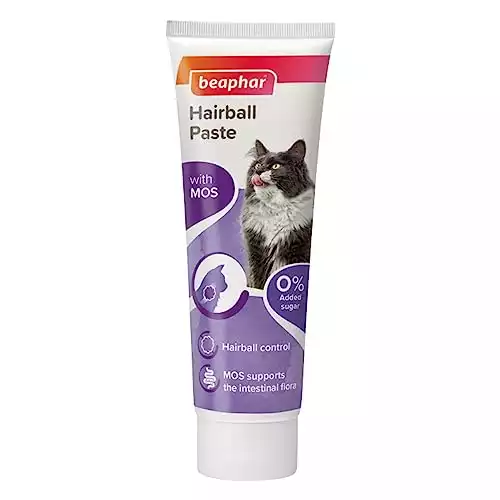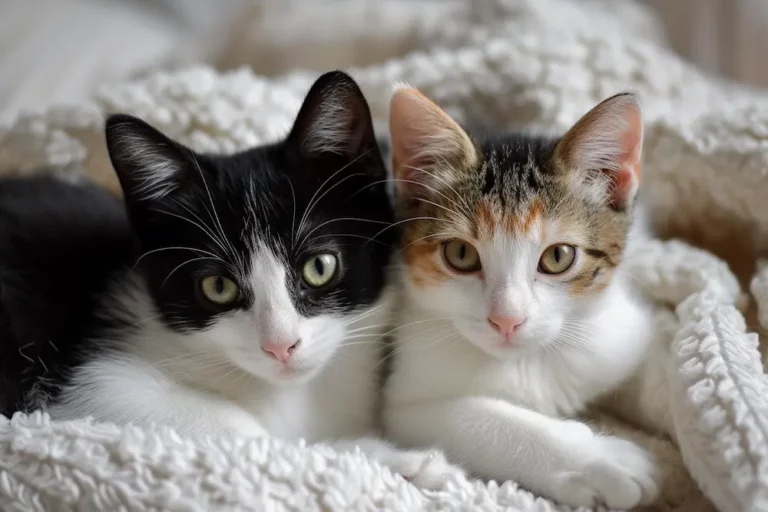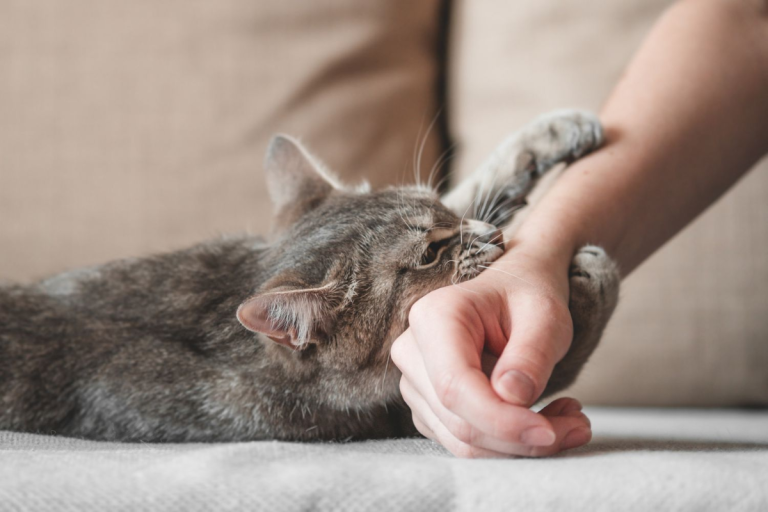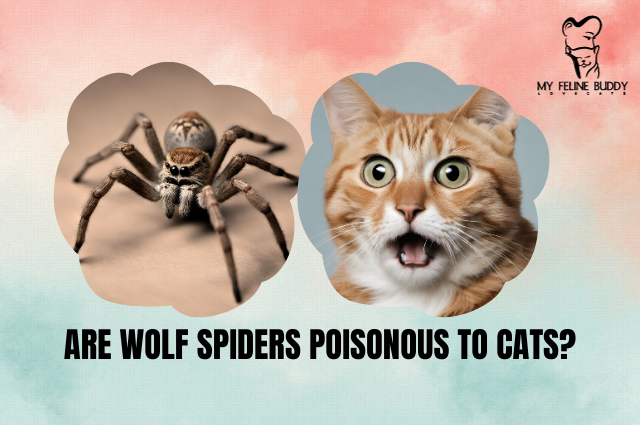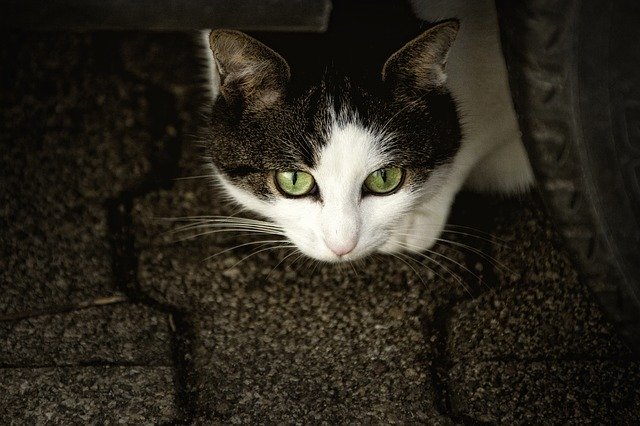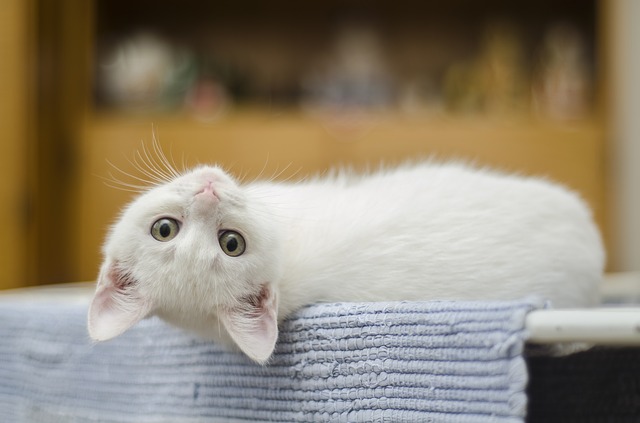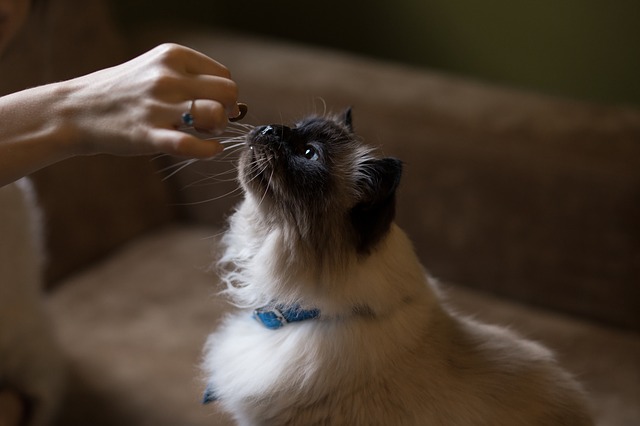What Causes Diarrhea in Cats?
If you’re a
In this article, we will delve into the world of feline gastrointestinal health, exploring various factors that can lead to diarrhea in cats. By the end, you’ll have the knowledge to identify the culprits behind your
Common Causes of Diarrhea in Cats
Dietary Triggers of Cat Diarrhea
What your
One product worth exploring on Amazon is Hill’s Science Diet Dry Cat Food. This premium cat food is formulated for sensitive stomachs, containing easily digestible proteins and fibers to promote healthy digestion.
Elevate your cat's well-being with our meticulously crafted adult cat food, a rich source of prebiotic fiber that fuels beneficial gut bacteria, supports a healthy microbiome, and ensures optimal nutrient absorption for a thriving feline friend. Enriched with vitamin E and omega-6 fatty acids, this highly digestible formula not only promotes skin health but also guarantees easy stool pickup, all made with natural ingredients you can trust and proudly crafted in the USA with global ingredients.
Gastrointestinal Disorders in Felines
Cats, like humans, can suffer from gastrointestinal disorders that lead to diarrhea. Conditions like inflammatory bowel disease (IBD) are known to cause chronic digestive problems. Understanding these disorders is crucial in managing your
Elevate your cat's well-being with Purina Pro Plan FortiFlora, the number one veterinarian-recommended cat probiotic brand in 2021. Specifically designed for the dietary management of kittens and adult cats with sensitive stomachs or diarrhea, this easy-to-feed probiotic powder contains powerful antioxidants to promote a robust immune system and proven probiotics for optimal intestinal health and balance.
For cats with gastrointestinal issues, a product like Purina Pro Plan Veterinary Diets FortiFlora
Parasites and Cat Diarrhea
Parasites are a common cause of
You can check the product below to make sure your little feline receives the best worm treatment in the world. But keep in mind that if you have never dewormed your
Safeguard your pet's health with our cost-effective solution for controlling and removing large roundworms, the most common intestinal parasite in dogs and cats of all ages. Easy to administer, this palatable formula can be added directly to your pet's water or food, providing a safe and convenient option for puppies and kittens over 6 weeks of age through all stages of life.
Infections Leading to Cat Diarrhea
Infections, such as viral or bacterial, can also result in diarrhea in cats. These infections can be transmitted from other cats or through contaminated environments. It’s crucial to be aware of the risk and take preventive measures.
Some viral infections that affect the digestive tract can be prevented through vaccination. Bacterial infections are more difficult to prevent, but if you generally feed your
Stress-Induced Diarrhea in Cats
Cats are sensitive creatures, and stress can significantly impact their digestive health. Some research has highlighted the connection between stress and diarrhea in cats. Identifying and mitigating stressors is key to preventing this type of digestive upset.
To alleviate stress-related digestive issues, you might consider products like Feliway Classic
Discover peace of mind for you and your feline friend with FELIWAY Classic, the #1 vet-recommended solution that helps cats adapt to challenging situations. Proven to reduce urine spraying in 9 out of 10 cats, this drug-free diffuser mimics natural facial pheromones, offering a calming embrace for your pet in common stress-triggering scenarios. The starter kit includes a diffuser head and vial, providing a 30-day supply, ensuring your cat's tranquility in areas up to 700 square feet. Trust FELIWAY Classic for a harmonious home, where unwanted behaviors like spraying, peeing, and scratching become a thing of the past.
Litter Box Problems and Cat Diarrhea
Litter box issues can lead to
Clumping litters are known for being dust-free, and some options are hypoallergenic, too. If your
Experience unbeatable odor control with PetSafe ScoopFree Premium Crystal Litter. Absorbing urine and drying solid waste quickly, this long-lasting litter removes odors 5 times faster than clumping clay, lasting up to 30 days in a single-cat household, while the low-tracking and dust-free formula ensures less mess and more snuggle-worthy moments with your feline friend.
While I’m not a fan because it still develops some dust and might be dangerous particularly for asthmatic cats, crystal litter is still the best choice around as it allows you to scoop the waste and continue using it for a couple of days — not to mention that it doesn’t make your
Medications and Cat Diarrhea
Medications can sometimes be a double-edged sword when it comes to our cats’ well-being. Certain drugs, such as antibiotics or anti-inflammatory medications, can disrupt the delicate balance in the feline gut.
If your
Hair Balls on Digestive Health and Home Remedies
In addition to diarrhea caused due to medications, hairballs are a common reason for the occurrence of diarrhea in cats, and they can sometimes lead to digestive problems. Cats groom themselves regularly, ingesting loose hair that may form hairballs in their stomach. Some cats may be more prone to this issue, particularly those with long fur.
So when dealing with mild cases of
| Product Image | Product Name / Primary Rating / Price | Primary Button |
|---|---|---|
|
||
|
||
|
These hairball remedies can help to prevent and eliminate hairballs from your feline friend. It combines natural ingredients to help soothe your
Providing Vitamins For Digestive Health
As much as it is important to alleviate diarrhea when your
Vitamins play a crucial role in maintaining the overall health of cats and can contribute significantly to preventing diarrhea. Adequate vitamin levels support a robust immune system, helping the
Elevate your pet's well-being with our Multivitamin for Complex Support, expertly crafted to enhance the overall health of both cats and dogs. Packed with essential nutrients, this powerful supplement promotes vitality, supports a strong immune system, and ensures your furry companions thrive with every playful moment.
Chronic Diarrhea in Senior Cats
As cats age, they are susceptible to various health issues, including chronic diarrhea. If your senior
Consider incorporating senior
Indulge your feline friend with BLUE Wilderness Wild Delights, a grain-free masterpiece packed with real chicken and turkey. This premium canned cat food features meaty morsels, providing the energy your adult cat needs to stay active, all made with natural ingredients and without any wheat, corn, or artificial additives.
Feline Inflammatory Bowel Disease and Diarrhea
Feline Inflammatory Bowel Disease (IBD) is a condition that affects the gastrointestinal tract of cats. Recent research has uncovered the prevalence of IBD in cats and its link to diarrhea. It is best advised to visit your vet in this case and get a prescription recommended.
You might also like: Can cats get constipated?
Diagnosing Cat Diarrhea: Tests and Procedures
When your
In some cases, your veterinarian may recommend Paw Prints – Pet Record Keeper to help you track your
Track the life of multiple feline companions' health journey effortlessly with the Feline Health Record – a comprehensive 6" x 9" logbook covering weight records, veterinary visits, and complete pet details, ensuring a seamless record-keeping experience from kittenhood to adulthood. With 110 pages, a softcover, and securely bound pages, it's the perfect gift for any cat enthusiast, making the task of monitoring your feline friends' medical history a breeze.
Preventing Diarrhea in Indoor Cats
If your
Natural Treatments for Cat Diarrhea
Natural treatments can often be a gentle way to address diarrhea in cats. Some cats may respond well to herbal remedies. Chamomile and ginger are known for their soothing properties and may help alleviate digestive discomfort.
The more fiber in your
Provide fast and effective relief for your feline friend with HomeoPet Feline Digestive Upsets—a targeted remedy for digestive problems including vomiting 20 minutes after eating, constipation, and diarrhea. This specialized formula offers quick relief, promoting your
Some natural remedies can be found in products that come in various forms, such as drops or powders, like the product above.
Read more: Cerenia for Cats – How long to take effect?
When to See a Veterinarian for Cat Diarrhea
While many cases of
If your
In the case of
Frequently Asked Questions About What Causes Diarrhea in Cats
Now, let’s address some common questions that
What should I do if my cat has diarrhea?
If your
Can I feed my cat a bland diet to treat diarrhea?
Yes, you can feed your
What are the signs of dehydration in cats with diarrhea?
Signs of dehydration range from dry mouth and sunken eyes to lethargy and loss of skin elasticity. If you suspect dehydration, consult your vet immediately.
Are there cat food options specifically designed for cats with diarrhea?
Yes, there are
Promote a serene environment for your feline friend with Comfort Zone Cat Calming Pheromone Diffuser. This drug-free solution effectively reduces stress-related behaviors like urine marking and scratching, and most cats experience improved behavior within just two weeks. Trust the veterinarian-recommended Starter Kit for 60 days of calm, creating a positive atmosphere in homes with a single cat, and refill after 30 days for continued tranquility—because your cat's well-being matters.
How can I prevent my cat from getting diarrhea from stress?
Minimize stressors in your
You might also like: How to stimulate bowel movement in cats
Final thoughts
We hope you find these resources helpful in your quest to ensure your
In closing, we thank you for your dedication to your feline friend’s health. By staying informed and proactive, you’re making a significant difference in their life. Here’s to many more days of joy and contentment with your beloved
